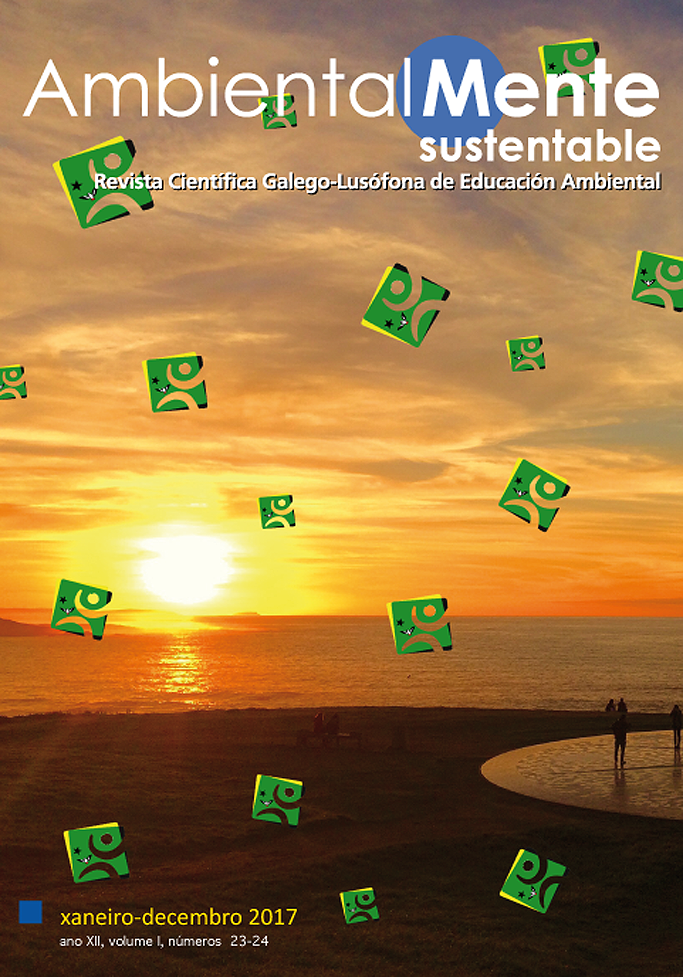Environmental Education in the context of the CPLP: An urgent challenge
Main Article Content
Abstract
Portuguese-speaking countries are at different levels in promoting Environmental Education (EA). A first survey conducted in 2017 shows that EA is mostly the responsibility of the Ministries of Environment and Education, with a role reserved for local administration and schools. While more significant in Brazil and Portugal, public support is widespread in most countries. The support of international organisations is mainly found in African countries and East-Timor while, albeit at different levels, national NGOs, foundations and national companies are present in all countries and contexts. In sum, although unevenly and in some countries still embryonic, these early results demonstrate that EA has already entered the public and political agendas of all Portuguese speaking countries. Therefore, to enhance the effectiveness of implementation, to improve public policies, and to ensure greater resilience to face the coming challenges, it is of particular importance to deepening the analysis and the knowledge of the EE field in the Community of Portuguese-Speaking Countries.
Keywords:
Downloads
Article Details
References
CIEA (1977). Declaração da Conferência Intergovernamental sobre Educação Ambiental. Tbilisi, Geórgia: Conferência Intergovernamental sobre Educação Ambiental.
Francisco, Santo Padre (2015). ‘Laudato Si’: sobre o cuidado da casa comum - Segunda carta encíclica do Papa Francisco. Lisboa: Paulus.
Guerra, João e Schmidt, Luísa (2016). Concretizar o Wishfull Thinking – dos ODS À COP21. Revista Ambiente & Sociedade, 19 (4): 179-196.
Jackson, Tim (2009). Prosperity without growth: economics for a finite planet. London, Earthscan.
Moore, Frances C. 2011. «Toppling the Tripod: Sustainable Development, Constructive Ambiguity, and the Environmental Challenge». The Journal of Sustainable Development, 5 (1): 141-150.
Oliveira Martins, Guilherme (coord.) (2017). Perfil dos alunos à saída da Escolaridade Obrigatória – Documento elaborado pelo Grupo de Trabalho criado nos termos do Despacho n.º 9311/2016, de 21 de julho. Lisboa, Ministério da Educação.
Redclift, Michael. (2005). “Sustainable development (1987-2005): an oxymoron comes of age”, em Sustainable Development, 13 (4), 212-227.
Sato, Michéle (2001). “Debatendo os desafios da Educação Ambiental”, em I Congresso de Educação Ambiental Pró Mar Dentro, Rio Grande: Mestrado em Educação Ambiental. Rio Grande, FURG & Pró Mar de Dentro, 14-, 17-21/maio/2001.
Schmidt, Luísa, Nave, Joaquim Gil, Guerra, João (2010). Educação Ambiental: Balanço e perspetivas para uma agenda mais sustentável. Lisboa, Imprensa de Ciências Sociais.
Sen, Amartya (2006). “Human Rights and Capabilities”, em Journal of Human Development and Capabilities, 7, 151-166.
The Commission of Inquiry into the Future of Civil Society (2010): Making good society - Final report of the Commission of Inquiry into the Future of Civil Society in the UK and Ireland. Dunfermline, Carnegie UK Trust.
UNESCO (2017): Educação para os Objetivos de Desenvolvimento sustentável – Objetivos de aprendizagem. Paris, UNESCO.



